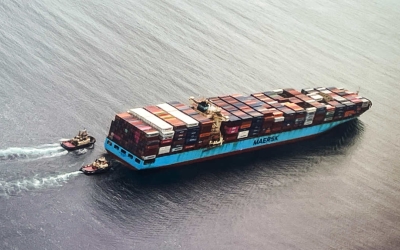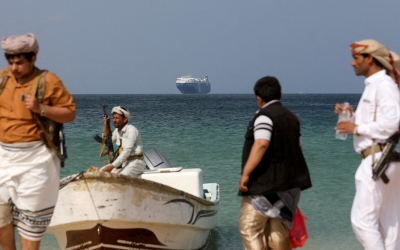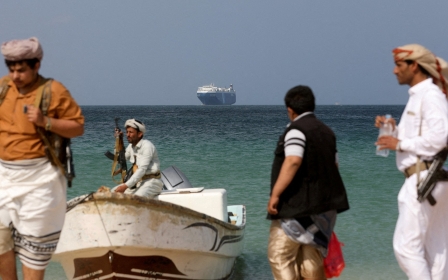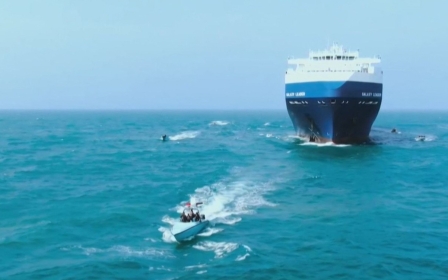War on Gaza: Maersk will resume Red Sea shipping after US-led coalition deploys
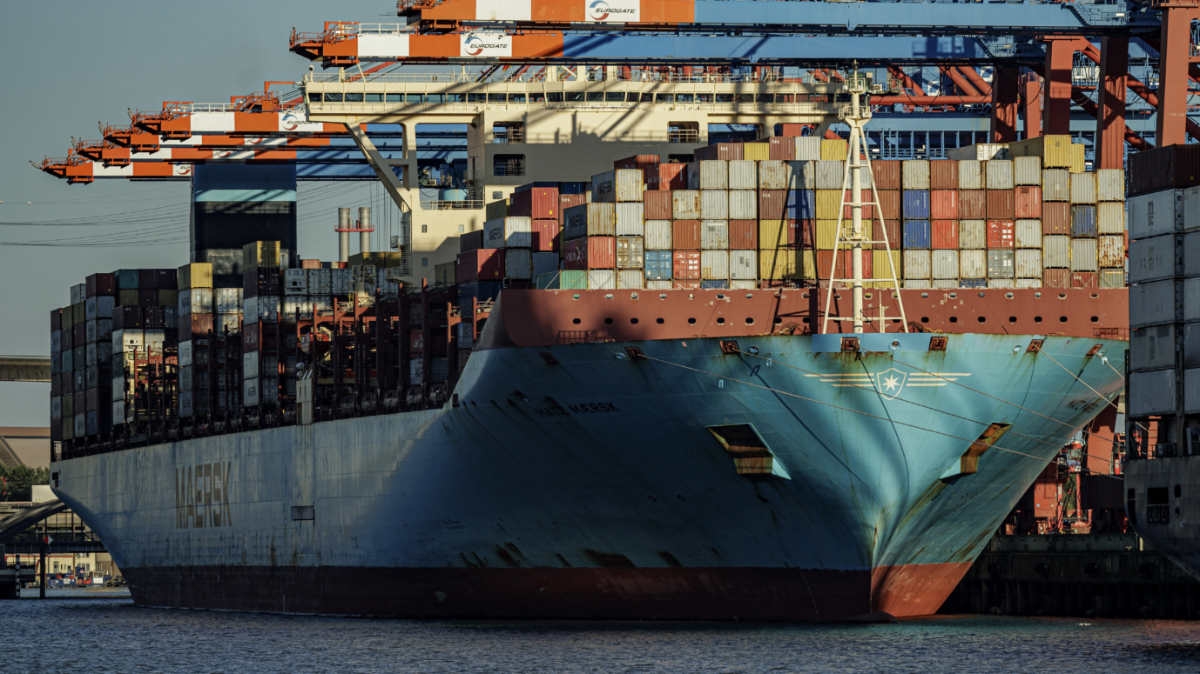
The world's second-largest container shipping company says it will resume sailing in the Red Sea after suspending activities in the area following Houthi maritime attacks.
Maersk said on Sunday that its vessels would resume sailing because a new US-led task force has deployed to the area providing enhanced maritime security.
"We have received confirmation that the previously announced multi-national security initiative Operation Prosperity Guardian (OPG) has now been set up and deployed to allow maritime commerce to pass through the Red Sea-Gulf of Aden and once again return to using the Suez Canal as a gateway between Asia and Europe," Maersk said in a statement.
The US announced the task force last week in response to a series of missile and drone attacks by the Houthis, which the Iran-aligned group said were a response to Israeli aggression in Gaza.
The US says the Houthis have launched more than 100 drone and missile attacks on 10 commercial vessels in the Red Sea, disrupting global trade flows and higher shipping costs, particularly for container ships hauling goods between Europe and Asia.
Stay informed with MEE's newsletters
Sign up to get the latest alerts, insights and analysis, starting with Turkey Unpacked
The Red Sea sits between the Bab al-Mandab Strait in the south and the Suez Canal in the north. It accounts for 12 percent of global trade, including 30 percent of all container ship traffic.
Vessels diverting from the Red Sea have been forced to take the more circuitous route around the Cape of Good Hope in Africa.
Houthi attacks spark rally in shipping stocks
The longer journey time contributed to a rally in freight rates, which surged 44 percent this month to $2,413, according to freight booking and payments platform, Freightos.
Although the Houthis said they were targeting only Israeli-linked vessels, some with no ties to Israel have been hit. The Houthi attacks sparked an industry-wide rally in container shipping companies' stock prices because of the longer journey times.
The last time transit through the Red Sea was seriously impacted by the Israeli-Palestinian conflict was during the 1967 war, when Egypt closed the Suez Canal, only reopening it eight years later in 1975.
"If you go back to the 1967 war when the Suez Canal was shut, rates skyrocketed. That was a golden age for shipping. This was the era of Aristotle Onassis when Greek ship owners made tons of money," John Kartsonas, the Managing Partner of Breakwave Advisors, previously told Middle East Eye.
"If the Red Sea becomes an area where ships can't transit for months on end, then you are talking about a favourable environment for vessel owners and shipping companies."
Hijacked ship becomes tourist attraction
Earlier in December, western officials had privately told members of the shipping industry to continue to expect disruptions because of Houthi attacks, MEE previously reported.
The warnings reflected US President Joe Biden's administration's predicament as it scrambled for a way to deter the Houthis without endangering peace talks between the group and Saudi Arabia.
While some advocated for the US to launch retaliatory strikes against the Houthis, with the new US-led naval task force, Operation Prosperity Guardian, the US has opted for defensive measures to safeguard commercial vessels.
Maersk said that it was working to restart transiting the area, but that it could reevaluate its plans based on the risks.
Some analysts say the Houthis appear to relish the chance of direct confrontation with the US and Israel over the Red Sea. Underscoring the challenges for the Biden administration, only one Arab country, the Kingdom of Bahrain signed on to the task force.
Gulf states are reluctant to join the group out of concern it would appear they are siding with Israel at a time when their people are outraged over the war in Gaza.
Saudi Arabia, which occupies a large swath of Red Sea coastline and is in peace talks with the Houthis is also unwilling to publicly take the group on, experts say.
"Iran and the Houthis have managed to intimidate their Arab neighbours. The Gulf states have everything to lose picking a fight with Iran and Iran has nothing to lose. The Houthis and Iran have already won," Ali Alfoneh, a senior fellow at the Arab Gulf States Institute, told MEE.
Meanwhile, the attacks have boosted the Houthis' prestige in many quarters of the region, where the Arab public is boiling with anger over Israel.
The Houthis have turned the Galaxy Leader, a ship seized by the group on 19 November in the Red Sea off the coast of Hodeidah, into a tourist attraction. Locals are taking small boats to the vessel where they take selfies on the top deck and with the captured crew, MEE has reported.
Middle East Eye delivers independent and unrivalled coverage and analysis of the Middle East, North Africa and beyond. To learn more about republishing this content and the associated fees, please fill out this form. More about MEE can be found here.


